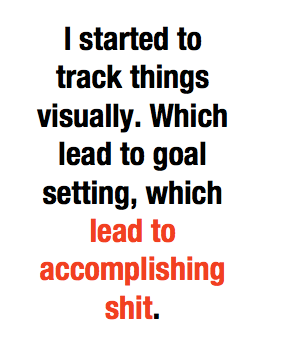Melissa Chadburn is a lover and a fighter, a union rep, a social arsonist, a writer, a lesbian, of color, smart, edgy and fun. Her work has appeared in Guernica, Salon, and the Rumpus, among others. In Ask a freelancer, Chadburn fields questions about writing, the blogosphere, platform building, and all things scary. She don’t presume to know everything but she knows people that know more things than her and if there’s one thing she’s learned it’s that there’s nothing to be gained from withholding information. Reach her at fictiongrrrl(at)gmail.com or follow her on Twitter. She loves your whole outfit right now.
Dear Freelancer,
I currently work a full time job, and it's nice to have money. But I'm not doing what I love, and I miss working in a more literary capacity. So how do you do it? How do you do freelance? How do you even start? And make sure you have enough work and everything?
—Howza in Whozzitsville
***
Dear Howza,
I think the answer is slowly but surely, and I still don’t know how to do it without having to get down on my knees at least once a month—a plea for some sort of miracle. Sometimes I think the solace of having a regular income is much better than worrying about scurrying around at the end of the month. I still take a host of part time gigs to pay my bills. The answer to how I got here is I kept my job and wrote articles for money at night and on the weekends until I got to the point where I had enough freelance work that one was conflicting with the other. So I would say from my experience it’s best to try to do it now while you already have a job, and then when it gets to be a conflict where you have too much work you can let go of that soul sucking desk job.
The Freelancer’s simple 4-step recipe to freelancing:
Step 1: Do the writing. Write a ton of articles on spec. Essays that are timely—and somehow offer a fresh perspective on something that is newsworthy or book reviews or journalistic pieces, whatever your jam is. Also the main way I end up supplementing my income is teaching workshops. Try to see if you can get a teaching gig on the side, or host a workshop at a local library, community college, recreation center, or in your home.
Step 2: Submit. I used to try to do one hundred submissions a month. Submit them to publications using an organized tier system. Don’t “submission bomb” places. Meaning, don’t just go down a list in duotrope alphabetically. Be strategic. Develop a submission tracker in Excel and submit to journals and periodicals by tier. Address all of your submissions personally to the editor of the journal and section of the journal you are submitting to. Set a goal for yourself to publish in the higher tier each year.
Step 3: Keep loving, supportive people that believe in you in your life. To be completely honest I don’t think I would have done any of this if I didn’t have a partner that believed in me. I’m petrified of financial ruin. I would have taken at least twelve less risks this year if I didn’t have someone around that urged me towards what I loved. I also feel like I needed to maintain a healthy dose of pragmatism.
Step 4: Be realistic and stay grounded. I mean my lifestyle isn’t exactly small either. I have a big life with a car payment and a smartphone and a dog and a cat so I really have to push if that’s something I want to maintain. I’ve let go of some luxury items like television and Sirius and I have to stay within a budget.
 Personally, I made a conscious choice to really focus my efforts in procuring freelance work in my second year at an MFA program. Every time class was in session I’d get all jazzed about writing and resented my time spent elsewhere. One of my colleagues, yuvi zalkow, made this great video that is more about how to get your work published, but upon watching it I developed a strategy and committed myself to an 80/20 writing to submitting ratio.
Personally, I made a conscious choice to really focus my efforts in procuring freelance work in my second year at an MFA program. Every time class was in session I’d get all jazzed about writing and resented my time spent elsewhere. One of my colleagues, yuvi zalkow, made this great video that is more about how to get your work published, but upon watching it I developed a strategy and committed myself to an 80/20 writing to submitting ratio.
Also, my girlfriend covered a wall in our office with cork. I made it my “creation station,” and on it I posted personal rejections, acceptances, works in progress. I started to track things visually. Which lead to goal setting, which lead to accomplishing shit.
So here’s the end of the recipe: The main thing is to keep your happiness and your relationships at the helm of all this. Those two do not get sacrificed. If I can meet my financial obligations writing, then great. If not, I meet my financial obligations doing other things, and then I write. Three parts happiness, two parts relationship, one part financial obligation, all parts hard work, love, and determination.
Xoxo,
Freelancer
Photo by Brandon Martin-Anderson/Flickr


